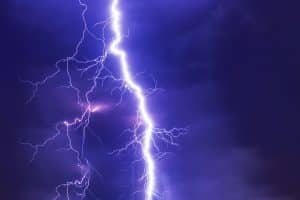How Does a Generator Produce Electricity?

Wondering how does a generator produce electricity? The following is a simple and straightforward blog providing you with generator basics. If you find this information helpful and would like to know more, please contact us at Woodstock Power.
Basics
One way to think of a generator is as an “energy engine,” but rather than powering a car or other vehicle, it powers a building. A generator takes kinetic energy (or motion) and converts it into electricity. This energy is created when an electromagnet (armature) spins in a stationary magnetic field (stator) to produce electrical current.
With gasoline powered generators, an internal combustion engine drives a rotating shaft that turns the armature.
Parts
These are the parts of a generator you should know when shopping for a generator of any kind.
- Frame – Shields electrical and moving parts. Keeps dirt and moisture out.
- Rotating Shaft – Connected to a motor or propellers in wind/water generators.
- Bearings – Reduces friction caused by the rotation.
- Field Windings – A coil that creates a magnetic field through which current flows.
- Armature – Creates electromagnetic induction by spinning inside the stator of opposing magnetism.
- Stator – A stationary magnetic field with large copper windings.
- Commutator – A conductor through which electricity collects.
- Brush Assembly – Rubs against commutator that sends electrical current out.
Generator vs. Alternator
One common question concerns the difference between a generator and an alternator. The two are certainly similar, but here are a couple of important distinctions.
- The conductor in a generator rotates to produce electromagnetic induction, while an alternator’s conductor remains stationary.
- Generators can use AC and DC power, while most alternators only use AC.
- Generators can produce immense amounts of wattage per kilowatt and are, therefore, much more substantial. Likewise, alternators tend to be more economical, use fewer parts, and used in smaller load applications like automobiles.
For More Information
It is important to know how does a generator produce electricity. If you need additional assistance, one of our friendly and knowledgeable staff members at Woodstock Power would be happy to help. Contact us today.

